
Four rich and soulful pieces of electric jazz with an often Mwandishi-feel, from bassist Bill Laswell in a 9-piece ensemble of outstanding improvisers: Pharoah Sanders on sax, Peter Apfelbaum on sax, flute & keyboards, Herbie Hancock on electric piano, and 5 drummer/percussionsts--Jerry Marotta, Chad Smith, Hideo Yamaki, Satoyasu Shomura and, Adam Rudolph.
Out of Stock
Reordered on 3/16/2021
Quantity in Basket: None
Log In to use our Wish List
Shipping Weight: 3.00 units
Sample The Album:
Bill Laswell-bass, effects
Pharoah Sanders-saxophone
Peter Apfelbaum-saxophone, flute, keyboards
Herbie Hancock-electric piano
Jerry Marotta-drums
Chad Smith-drums
Hideo Yamaki-drums
Satoyasu Shomura-drums
Adam Rudolph-percussion
Click an artist name above to see in-stock items for that artist.
UPC: 634457010611
Label: Mod Reloaded
Catalog ID: CD-MOD-00100
Squidco Product Code: 29248
Format: CD
Condition: New
Released: 2020
Country: USA
Packaging: Digipack - 3 panel
Created at Orange Music,in West Orange, New Jersey, engineered by James Dellatacoma.
"Over the course of three decades, visionary bassist/producer Bill Laswell has been one of the most prolific and restlessly creative forces in contemporary music, always a few steps ahead of the curve, EVOLUTION/REVOLUTION.
Against Empire, a new catagory of magical, electro/acoustic technology. Further research may shed a most revealing light on thr development of sound storage in material culture.
Against Empire projects a hybrid activity, constantly evolving texture crashes against smooth, unfolding rhythms built around the solid and elastic drum foundations of four iconic drummers - Jerry Marotta (Peter Gabriel), Chad Smith (Red Hot Chili Peppers), Hideo Yamaki (Japan's top dummer) and Satoyasu Shomura (Japanese pop phenomenon). The legendary saxophoniost Pharoah Sanders, especially known for his radical collaborations with John Coltrane, versatile multi-instrumentalist Peter Apfelbaum, minimal contributions from the great Herbie Hancock on electric piano and the unmistakable touch of master percussionist Adam Rudolph.
Against Empire, an iconoclast offering of multi-directional movements .... avant-jazz, rock, dub, experimental, ambient, sub-bass and on and on .... a dream colonization, a bizarre image of paradise, an imagined quality of elsewhere, constucts of the imagination, essense of difference.
Nothing is True, Everything Is Permitted"-MOD Reloaded
Artist Biographies
• Show Bio for Bill Laswell "Over the course of some three decades, visionary bassist-producer Bill Laswell has been one of the most prolific and restlessly creative forces in contemporary music. A sound conceptualist who has always been a step ahead of the curve, he has put his inimitable stamp on nearly 3,000 recording projects by such artists as Mick Jagger, Yoko Ono, Iggy Pop, Laurie Anderson, Brian Eno, Bootsy Collins, Nine Inch Nails, Motorhead, Peter Gabriel, Blur, The Ramones, George Clinton, Pharaoh Sanders, The Dalai Lama, Matisyahu, Angelique Kidjo, DJ Krush, RAMM:ΣLL:ZΣΣ, Sting, The Last Poets, Afrika Bambaataa, Julian Schnabel, Whitney Houston, Manu Dibango, Fela Kuti and most notably Herbie Hancock, who collaborated with Laswell for the pivotal 1983 smash-hit single "Rock-It" which introduced scratching to the mainstream, inspired a generation of turntablists and gave the great jazz pianist instant street credibility among the burgeoning hip-hop cognoscenti. Laswell's sense of creative daring as a producer was further demonstrated on several recordings that have kept him on the cutting edge, including Afrika Bambaataa's collaboration with John Lydon (aka Johnny Rotten of Sex Pistols fame) on World Destruction and PiL's Album (which brought together an unlikely pairing of drumming greats Ginger Baker and Tony Williams, synth-pop pioneer Ryuichi Sakamoto of Yellow Magic Orchestra fame and rising guitar star Steve Vai). His spoken word collaborations with William S. Burroughs and expatriate writer-composer Paul Bowles have gone against the grain of music industry trends while his radical remixes (or re-constructions) of landmark recordings by Miles Davis (Panthalassa), Carlos Santana (Divine Light), Bob Marley (Dreams of Freedom) and a vast scan of dub-related and atmospheric ambient projects have gone on to further defined Laswell's presence as a revolutionary ikonoklast. Bill Laswell has helped in generating several innovative recording labels such as Celluloid, Subharmonic, Black Arc, and Innerhythmic. Along with Chris Blackwell, founder of Island Records (Bob Marley and U2), he established the AXIOM label in 1989. M.O.D. Technologies, his most recent imprint is releasing projects by Method Of Defiance, Lee "Scratch" Perry, PRAXIS, Garrison Hawk with Sly & Robbie, Bernie Worrell, The Process (with Red Hot Chili Peppers' drummer Chad Smith and pianist Jon Baptiste) and progressive/futuristic music from Ethiopia (CDs/DVDs). As a player, Laswell's bass lines resound with rare authority on groundbreaking projects by Tabla Beat Science (with Zakir Hussain and Ustad Sultan Khan), his avant-funk band Material, the apocalyptic assault of Last Exit (with Sonny Sharrock), his progressive dub effected Method of Defiance and the throbbingly intense power trios, Massacre (with Fred Frith and Charles Hayward), Painkiller (with John Zorn and Mick Harris), Praxis (with Buckethead and Brain), Blixt (with Raoul Bjorkenheim and Morgan Agren) and the latest (2014) Bladerunner (with John Zorna and Slayer drummer Dave Lombardo). Laswell's artistic reach has consistently extended to the continent of Africa, creating ground-breaking, evolutionary snd controversial recording projects in Morocco, Senegal, Mali, Gambia and most recently, Ethiopia where he has established a base for developing new as well as legendary artists, just as he did in the South Bronx some 30 years ago. A veteran of 300 plus journeys to Japan, where he has worked with everyone from The Gagaku Orchestra (Japan's ancient music, only played for emperors for 1500 years), to avant-jazz, rock, hip-hop and DJ culture. An eternal musical renegade, Bill Laswell has always played by his own rules." ^ Hide Bio for Bill Laswell • Show Bio for Pharoah Sanders "Pharoah Sanders (born October 13, 1940) is an American jazz saxophonist. Saxophonist Ornette Coleman once described him as "probably the best tenor player in the world." Emerging from John Coltrane's groups of the mid-1960s, Sanders is known for his overblowing, harmonic, and multiphonic techniques on the saxophone, as well as his use of "sheets of sound". Sanders is an important figure in the development of free jazz; Albert Ayler famously said: "Trane was the Father, Pharoah was the Son, I am the Holy Ghost". Pharoah Sanders was born Farrell Sanders on October 13, 1940 in Little Rock, Arkansas. His mother worked as a cook in a school cafeteria, and his father worked for the City of Little Rock. An only child, Sanders began his musical career accompanying church hymns on clarinet. His initial artistic accomplishments were in art, but when he was at Scipio Jones High School in North Little Rock, Sanders began playing the tenor saxophone. The band director, Jimmy Cannon, was also a saxophone player and introduced Sanders to jazz. When Cannon left, Sanders, although still a student, took over as the band director until a permanent director could be found. During the late 1950s, Sanders would often sneak into African-American clubs in downtown Little Rock to play with acts that were passing through. At the time, Little Rock was part of the touring route through Memphis, Tennessee, and Hot Springs for R&B and jazz musicians, including Junior Parker. Sanders found himself limited by the stateŐs segregation and the R&B and jazz standards that dominated the Little Rock music scene. After finishing high school in 1959, Sanders moved to Oakland, California, and lived with relatives. He briefly attended Oakland Junior College and studied art and music. Once outside the Jim Crow South, Sanders could play in both black and white clubs. His Arkansas connection stuck with him in the Bay Area with the nickname of ŇLittle Rock.Ó It was also during this time that he met and befriended John Coltrane. Pharoah Sanders began his professional career playing tenor saxophone in Oakland, California. He moved to New York City in 1961 after playing with rhythm and blues bands. He received his nickname "Pharoah" from bandleader Sun Ra, with whom he was performing. After moving to New York, Sanders had been destitute: "He was often living on the streets, under stairs, where ever he could find to stay, his clothes in tatters." Sun Ra gave him a place to stay, bought him a new pair of green pants with yellow stripes (which Sanders hated but had to have), encouraged him to use the name 'Pharoah', and gradually worked him into the band." Sanders came to greater prominence playing with John Coltrane's band, starting in 1965, as Coltrane began adopting the avant-garde jazz of Albert Ayler, Sun Ra and Cecil Taylor. Sanders first performed with Coltrane on Ascension (recorded in June 1965), then on their dual-tenor recording Meditations (recorded in November 1965). After this Sanders joined Coltrane's final quintet, usually performing very lengthy, dissonant solos. Coltrane's later style was strongly influenced by Sanders. Although Sanders' voice developed differently from Coltrane, Sanders was strongly influenced by their collaboration. Spiritual elements such as the chanting in Om would later show up in many of Sanders' own works. Sanders would also go on to produce much free jazz, modified from Coltrane's solo-centric conception. In 1968 he participated in Michael Mantler and Carla Bley's Jazz Composer's Orchestra Association album The Jazz Composer's Orchestra, featuring Cecil Taylor, Don Cherry, Larry Coryell and Gato Barbieri. Pharoah's first album, Pharoah's First, wasn't what he expected. The musicians playing with him where much more straightforward than Sanders, which made the solos played by the other musicians a bit out of place. Starting in 1966 Sanders signed with Impulse! and recorded Tauhid that same year. His years with Impulse! caught the attention of jazz fans, critics, and musicians alike, including John Coltrane, Ornette Coleman, and Albert Ayler. In the 1970s, Sanders continued to produce his own recordings and also continued to work with the likes of Alice Coltrane on her Journey In Satchidananda album. Most of Sanders' best-selling work was made in the late 1960s and early 1970s for Impulse Records, including the 30-minute wave-on-wave of free jazz "The Creator has a Master Plan" from the album Karma. This composition featured vocalist Leon Thomas's unique, "umbo weti" yodeling, and Sanders' key musical partner, pianist Lonnie Liston Smith, who worked with Sanders from 1969-1971. Other members of his groups in this period include bassist Cecil McBee, on albums such as Jewels of Thought, Izipho Zam, Deaf Dumb Blind and Thembi. Although supported by African-American radio, Sanders' brand of free jazz became less popular. From the experiments with African rhythms on the 1971 album Black Unity (with bassist Stanley Clarke) onwards he began to diversify his sound. In the late 1970s and 1980s, Sanders explored different musical modes including R&B (Love Will Find a Way), modal jazz, and hard bop. Sanders left Impulse! in 1973 and redirected his compositions back to earlier jazz conventions. He continued to explore the music of different cultures and refine his compositions. However, he found himself floating from label to label. He found a permanent home with a small label called Theresa in 1987, which was sold to Evidence in 1991. However Sanders would continue to be frustrated with record labels for most of the 1990s. Also during this time, he went to Africa for a cultural exchange program for the U.S. State Department. SandersŐs major-label return would finally come in 1995 when Verve Records released Message from Home, followed by Save Our Children (1998). But again, SandersŐs disgust with the recording business prompted him to leave the label. In 1992, Sanders appears on a reissue (Ed Kelly and Pharoah Sanders) for the Evidence label of a recording that he completed for Theresa Records in 1979 entitled Ed Kelly and Friend. The 1992 version contains extra tracks which feature Pharoah's pupil Robert Stewart (saxophonist). This was Stewart's first recording for a jazz label. In 1994 he traveled to Morocco to record the Bill Laswell-produced album The Trance Of Seven Colors with Gnawa musician Mahmoud Guinia. The same year, Sanders appeared on the Red Hot Organization's album, Stolen Moments: Red Hot + Cool, on the track "This is Madness" with Umar Bin Hassan and Abiodun Oyewole and the bonus track, "The Creator Has A Master Plan (Trip hop Remix)." The album was named "Album of the Year" by Time. Sanders worked with Laswell, Jah Wobble, and others on the albums Message From Home (1996) and Save Our Children (1999). In 1999, he complained in an interview that despite his pedigree, he had trouble finding work. In 1997 he was featured on several Tisziji Munoz albums also including Rashied Ali. In the 2000s, a resurgence of interest in jazz kept Sanders playing festivals including the 2007 Melbourne Jazz Festival and the 2008 Big Chill Festival, concerts, and releasing albums. He has a strong following in Japan, and in 2003 recorded with the band Sleep Walker. In 2000, Sanders released Spirits and, in 2003, a live album titled The Creator Has a Master Plan. He was awarded an NEA Jazz Masters Fellowship for 2016 and was honored at a tribute concert in Washington DC on April 4, 2016." ^ Hide Bio for Pharoah Sanders • Show Bio for Peter Apfelbaum "Born in Berkeley, California in 1960, Peter Apfelbaum started playing drums at the age of three, taking up piano and saxophone in elementary school and forming his first band at age 11. A product of the Berkeley Schools' pioneering Jazz Project, Apfelbaum began performing professionally while in his early teens and was a member of the award-winning Berkeley High Jazz Ensemble under the direction of Phil Hardymon. In 1977 - his senior year at Berkeley High - he formed the 17-piece Hieroglyphics Ensemble as a vehicle for composing and exploring non-traditional musical forms. The Ensemble was initially largely comprised of fellow BHS classmates, some of whom would later move to New York and achieve recognition in their own right. The band originally included pianist Benny Green, saxophonist Craig Handy and trumpeter Steven Bernstein and would later feature saxophonist Joshua Redman prior to his move to NY. The band released their self-produced debut album, Pillars, in 1979 and began to attract international attention for their unique mix of elements of world music with the aesthetic of the jazz avant-garde. Around this time Apfelbaum made his first sojourn to New York, where he worked with Carla Bley, David Amram and the late Eddie Jefferson. He toured Europe for the first time in the Fall of 1979 with Karl Berger's Woodstock Workshop Orchestra, an all-star band which included Lee Konitz, Oliver Lake, Don Cherry, Leroy Jenkins and Trilok Gurtu." ^ Hide Bio for Peter Apfelbaum • Show Bio for Herbie Hancock "Herbert Jeffrey Hancock (born April 12, 1940) is an American pianist, keyboardist, bandleader, composer and actor. Hancock started his career with Donald Byrd. He shortly thereafter joined the Miles Davis Quintet, where he helped to redefine the role of a jazz rhythm section and was one of the primary architects of the post-bop sound. In the 1970s, Hancock experimented with jazz fusion, funk, and electro styles. Hancock's best-known compositions include the jazz standards "Cantaloupe Island", "Watermelon Man", "Maiden Voyage", and "Chameleon", as well as the hit singles "I Thought It Was You" and "Rockit". His 2007 tribute album River: The Joni Letters won the 2008 Grammy Award for Album of the Year, only the second jazz album to win the award, after Getz/Gilberto in 1965. [...]" ^ Hide Bio for Herbie Hancock • Show Bio for Jerry Marotta "Jerry Marotta was born in Cleveland, Ohio. At the age of five his family moved to Harrison, NY in Westchester county. In the 4th grade he started taking clarinet lessons. In the very first report card that year, his music teacher wrote Jerry shows absolutely no interest in the clarinet! He switched over to saxophone with only a little more success. Ironically it was that same year that Jerry's brother Rick Marotta brought home the drum kit that would change both their lives for good. Cut to Jerry graduating from Harrison High in the summer of 1973 (a year early) and taking his final exams on the road with him. Jerry's brother Rick had done a record with a group called Arthur, Hurley and Gotlieb for Columbia Records and their single had just broken the top 40.They were in need of a drummer and Jerry got the call. In 1975 Jerry auditioned for a Woodstock based group called Orleans and got the job. Soon afterwards he found himself in L.A. recording the Waking and Dreaming record, played on his first hit "Still The One" and on the road, with Orleans, supporting Jackson Browne. Orleans founding member, John Hall, left the band in the summer of 1977. As the band took time to decide what their next move would be, Jerry flew to London and started working with ex-Genesis lead singer Peter Gabriel. For the next two decades Jerry divided his time between recording and touring with Peter Gabriel, Daryl Hall and John Oates, Tears for Fears, Joan Armatrading, Paul McCartney, Sarah McLachlan, John Mayer and countless others. In 1986 Jerry started his own band Island Of Men. He then moved from New York City to Woodstock NY where put together his studio JERSVILLE STUDIOS and began producing recordings for his band and others. Jerry is currently dividing his time between recording and touring and managing two studios: DREAMLAND and JERSVILLE." ^ Hide Bio for Jerry Marotta • Show Bio for Chad Smith "Chad Gaylord Smith (born October 25, 1961) is an American musician who has been the drummer of the band Red Hot Chili Peppers since 1988. The group was inducted into the Rock and Roll Hall of Fame in 2012. Smith is also the drummer of the hard rock supergroup Chickenfoot, formed in 2008, and of the all-instrumental outfit Chad Smith's Bombastic Meatbats, formed in 2007. Smith has recorded with Glenn Hughes, Johnny Cash, John Fogerty, the Dixie Chicks, Jennifer Nettles, Kid Rock, Jake Bugg, the Avett Brothers, Joe Satriani, Post Malone, Lana Del Rey and Halsey. In 2010, joined by Dick Van Dyke and Leslie Bixler, he released Rhythm Train, a children's album which featured Smith singing and playing various instruments. In 2020, Smith co-wrote and performed as part of the backing band on Ozzy Osbourne's album, Ordinary Man. Spin magazine placed Smith at #10 on their list of the "100 Greatest Drummers of Alternative Music" in May 2013. Readers of UK-based Rhythm magazine ranked Smith and Red Hot Chili Pepper bassist Flea the fourth-greatest rhythm section of all time in their June 2013 issue. Smith is also known for his charity work especially with young musicians. He has been a lobbyist in support of music education in U.S. public schools. Smith is also the host of the PBS concert series, Landmarks Live in Concert, which began in January 2017." ^ Hide Bio for Chad Smith • Show Bio for Hideo Yamaki "Hideo Yamaki (山木 秀夫, Yamaki Hideo, born December 22, 1952) is a Japanese jazz drummer and percussionist. He is known for being the long time drummer for the band Toshinori Kondo & IMA. He has also collaborated with Arto Lindsay, John Zorn, Sakamoto Ryuichi, Hosono Haruomi, Robert Palmer, and Bill Laswell." ^ Hide Bio for Hideo Yamaki • Show Bio for Satoyasu Shomura "Satoyasu Shomura, born March 21, 1984 in Japan, is best known as a drummer. Member of the J-rock band [Alexandros] that would sign with Universal Music Japan in November of 2014. Their 2nd through 6th album all charted within the top 15 on the Oricon Albums Chart with their 6th album Exist! topping the chart. He was born on March 21, 1984 in Japan. He and Tomoya Kanki are both Japanese drummers. He became an official member of the band around April of 2010 after previously just being an occasional contributor." ^ Hide Bio for Satoyasu Shomura • Show Bio for Adam Rudolph "Adam Rudolph (born September 12, 1955) is a composer, improviser, and percussionist actively involved in modern music. For the past four decades Rudolph has performed extensively in concert throughout North & South America, Europe, Africa, and Asia. Rudolph has been hailed as "a pioneer in world music" by the New York Times and "a master percussionist" by Musician Magazine. He has released over 25 recordings under his own name, featuring his compositions and percussion work. Rudolph composes for his ensembles Adam Rudolph's Moving Pictures, the Hu Vibrational percussion group, and Go: Organic Orchestra, an 18 to 54 piece ensemble for which he has developed an original music notation and conducting system. He has taught and conducted hundreds of musicians worldwide utilizing the Go: Organic Orchestra concept. In 1995 Rudolph premiered his opera The Dreamer, based on the text of Friedreich Nietzche's "The Birth of Tragedy." Rudolph has performed with Don Cherry, Jon Hassell, Sam Rivers, Pharaoh Sanders[1], Bill Laswell, Herbie Hancock[1], Foday Musa Suso[1], Massimo Laguardia, L. Shankar, A.A.C.M. co-founders Fred Anderson and Muhal Richard Abrams, Wadada Leo Smith, and Omar Sosa. He has toured extensively and recorded 15 albums with Yusef Lateef including duets and their large ensemble compositional collaborations. Rudolph grew up in the Hyde Park area of the Southside of Chicago. From an early age he was exposed to the live music performances of the great blues and improvising artists who lived nearby. As a teenager, Rudolph started playing hand drums in local streets and parks and soon apprenticed with elders of African American improvised music. He performed regularly in Chicago with Fred Anderson and in Detroit with the Contemporary Jazz Quintet. In 1973 Rudolph played on his first record date with Maulawi Nururdin and with the CJQ at the Ann Arbor Blues and Jazz festival. In 1977 he lived and studied in Ghana, where he experienced trance ceremonies. In his travels throughout West Africa he saw how music can come from a cosmological grounding beyond music itself and can also be about something beyond music itself. In 1978 he lived in Don Cherry's house in the Swedish countryside. Cherry inspired him to start composing and showed him about Ornette Coleman's concept and the connection of music to nature. Rudolph is known as one of the early innovators of what is now called "World Music." in 1978 he and Gambian Kora player Jali Foday Musa Suso, along with fellow percussionist Hamid Drake, co-founded The Mandingo Griot Society[1], one of the first groups to combine African and American music. In 1988, he recorded the first fusion of American and Gnawa music with sintir player and singer Hassan Hakmoun. Rudolph intensely studied North Indian Tabla for over 15 years with Pandit Taranath Rao. He learned hundreds of drum compositions and about how music is a form of Yoga - the unity of mind, body and spirit. In 1988 Rudolph began his association with Yusef Lateef, with whom he has recorded over 15 albums including several of their large ensemble collaborations. Lateef introduced Rudolph to the inspirational practice of Autophysiopsychic Music - "that which comes from one's spiritual, physical and emotional self." Rudolph has performed worldwide with Dr. Lateef. Their performances have ranged from their acclaimed duet concerts to appearances as guest soloists with the Köln, Atlanta and Detroit Symphony Orchestras. Rudolph continues to also create visual art - painting, drawing, photography ‑ and to write. In 2006, his rhythm repository and methodology book, Pure Rhythm was published by Advance Music, Germany. In 2010 Rudolph's article Music and Mysticism: Rhythm and Form was published in Arcana V, edited by John Zorn. Other essays have been published by Parabola Magazine and Morton Books. Rudolph has been on the faculty of Creative Music Studio (New York and Istanbul), Esalen Institute, California Institute of the Arts and the Danish Jazz Federation Summer Institute. Rudolph has received grants and compositional commissions from the Rockefeller Foundation, Chamber Music America, Meet the Composer, Mary Flagler Cary Trust, the NEA, Arts International, Durfee Foundation, Phaedrus Foundation and American Composers Forum." ^ Hide Bio for Adam Rudolph
11/20/2024
Have a better biography or biography source? Please Contact Us so that we can update this biography.
11/20/2024
Have a better biography or biography source? Please Contact Us so that we can update this biography.
11/20/2024
Have a better biography or biography source? Please Contact Us so that we can update this biography.
11/20/2024
Have a better biography or biography source? Please Contact Us so that we can update this biography.
11/20/2024
Have a better biography or biography source? Please Contact Us so that we can update this biography.
11/20/2024
Have a better biography or biography source? Please Contact Us so that we can update this biography.
11/20/2024
Have a better biography or biography source? Please Contact Us so that we can update this biography.
11/20/2024
Have a better biography or biography source? Please Contact Us so that we can update this biography.
11/20/2024
Have a better biography or biography source? Please Contact Us so that we can update this biography.
Track Listing:
1. Golden Spiral 11:20
2. Tabu 16:16
3. Shadowline 15:05
4. The Seven Holy Mountains 17:57
Improvised Music
Electro-Acoustic
Electro-Acoustic Improv
Jazz
NY Downtown & Metropolitan Jazz/Improv
Large Ensembles
Staff Picks & Recommended Items
Search for other titles on the label:
Mod Reloaded.


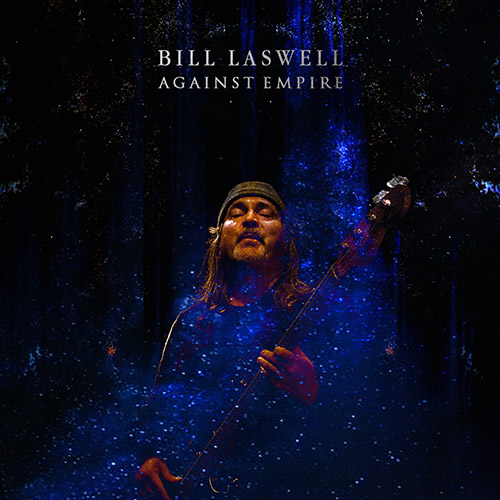

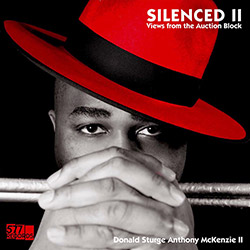

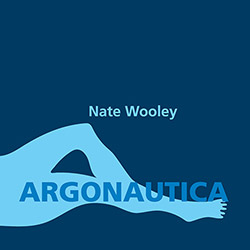
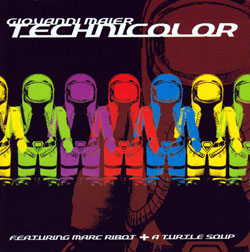
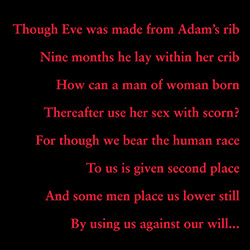
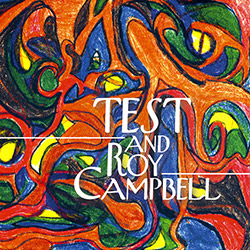
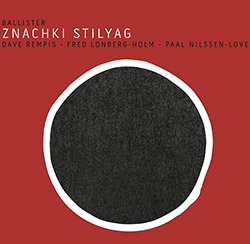
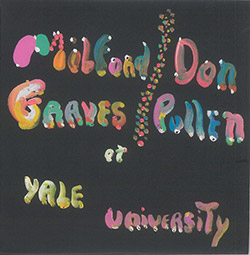
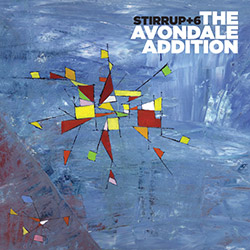
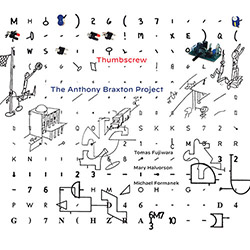
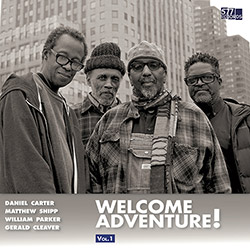
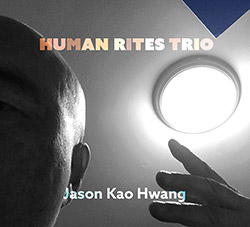
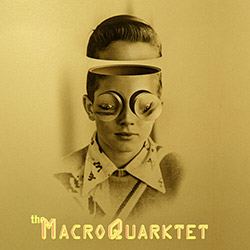
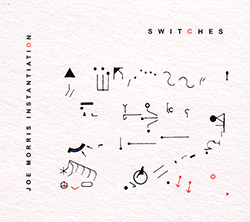
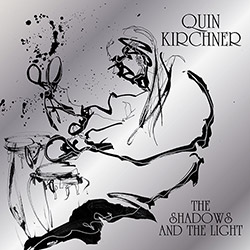


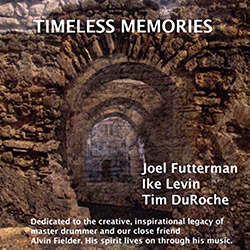
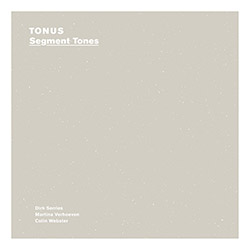

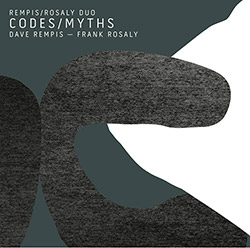
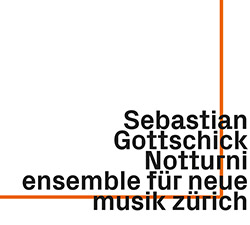

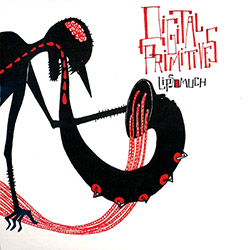
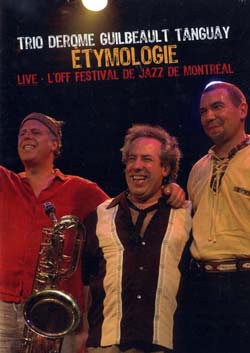


![Guy, Barry / Ken Vandermark: Occasional Poems [2 CDs]](https://www.teuthida.com/productImages/misc4/34849.jpg)
![Novoa / Carter / Mela Trio: Vol.1 [VINYL]](https://www.teuthida.com/productImages/misc4/35236.jpg)


![Elephant9 : Mythical River [VINYL]](https://www.teuthida.com/productImages/misc4/34624.jpg)
![Evans, Peter (Evans / Eldh / Black): Extra [VINYL]](https://www.teuthida.com/productImages/misc4/35279.jpg)

![McPhee, Joe: Straight Up, Without Wings [BOOK]](https://www.teuthida.com/productImages/misc4/35454.jpg)
![Jeck, Philip: rpm [2 CDs]](https://www.teuthida.com/productImages/misc4/35455.jpg)













![Barker / Parker / Irabagon: Bakunawa [VINYL]](https://www.teuthida.com/productImages/misc4/35533.jpg)
![Blaser, Samuel / Marc Ducret / Peter Bruun: Dark Was The Night, Cold Was The Ground [VINYL 10-inch]](https://www.teuthida.com/productImages/misc4/35492.jpg)








![Warren, Kenny (Warren / Hoffman / Ellman): Sweet World [VINYL]](https://www.teuthida.com/productImages/misc4/35451.jpg)




![Blake, Ran / Dave Knife Fabris: Live Amsterdam 2006, First Visit [CD + POSTCARDS]](https://www.teuthida.com/productImages/misc4/35275.jpg)













![DNS: Taking Big Bites Of The Khandas Three Cafes Deep [2 CDs]](https://www.teuthida.com/productImages/misc4/35334.jpg)




![Cleaver, Gerald: The Process [VINYL]](https://www.teuthida.com/productImages/misc4/34966.jpg)




![Alva Noto: HYbr:ID II [VINYL 2 LPs]](https://www.teuthida.com/productImages/misc4/35201.jpg)

![Baron, Derek / Luke Martin: Distinct and Concealed [CASSETTE + DOWNLOAD]](https://www.teuthida.com/productImages/misc4/35079.jpg)

![Lyle, Erica Dawn : Colonial Motels [CASSETTE + DOWNLOAD]](https://www.teuthida.com/productImages/misc4/35080.jpg)









![Sanna, Claudio: Compositori Sardi Contemporanei II [2 CDs]](https://www.teuthida.com/productImages/misc4/35317.jpg)







![Zurria, Manuel: Fame di Vento [3 CDs]](https://www.teuthida.com/productImages/misc4/35167.jpg)

![Granberg, Magnus / Nattens Inbrott / Skogen: Holde Traume, Kehret Wieder! [2 CDs]](https://www.teuthida.com/productImages/misc4/35038.jpg)
![Frey, Jurg: Outermost Melodie [2 CDs]](https://www.teuthida.com/productImages/misc4/35039.jpg)

![Pavone, Jessica: Reverse Bloom [VINYL]](https://www.teuthida.com/productImages/misc4/34895.jpg)




![Modney (Modney / Wooley / Gentile / Roberts / Pluta / Symthe / ...): Ascending Primes [2 CDs]](https://www.teuthida.com/productImages/misc4/34852.jpg)









![Elephant9 with Terje Rypdal: Catching Fire [VINYL 2 LPs]](https://www.teuthida.com/productImages/misc4/35355.jpg)
![Deerlady (Obomsawin, Mali / Magdalena Abrego): Greatest Hits [VINYL]](https://www.teuthida.com/productImages/misc4/34876.jpg)




![Haino, Keiji: Black Blues [2 CDs]](https://www.teuthida.com/productImages/misc4/35109.jpg)



![Surplus 1980: Illusion of Consistency [CD]](https://www.teuthida.com/productImages/misc4/35069.jpg)
![Staiano, Moe: Away Towards the Light [VINYL + DOWNLOAD]](https://www.teuthida.com/productImages/misc4/35037.jpg)



![Caveira (Gomes / Sousa / Abras / Ferrandini): Ficar Vivo [VINYL]](https://www.teuthida.com/productImages/misc4/34643.jpg)
![Gregg, J. J. / David Van Auken: Lunar Prairie [CD w/ DOWNLOAD]](https://www.teuthida.com/productImages/misc4/34611.jpg)

![Coultrain: Mundus [VINYL]](https://www.teuthida.com/productImages/misc4/32439.jpg)
![Mattin: Songbook #6 [VINYL]](https://www.teuthida.com/productImages/misc4/27317.jpg)
![Punkappella: Wake Up [7-inch VINYL]](https://www.teuthida.com/productImages/misc4/17519.jpg)
![Residents, The: WARNING: UNiNC.: Live And Experimental Recordings 1971-1972 [VINYL 2 LPs]](https://www.teuthida.com/productImages/misc4/31521.jpg)
![Coultrain: Phantasmagoria [VINYL]](https://www.teuthida.com/productImages/misc4/30142.jpg)
![Lennon, Sean Ono: Asterisms [VINYL]](https://www.teuthida.com/productImages/misc4/34517.jpg)

![Coley, Byron: Dating Tips for Touring Bands [VINYL]](https://www.teuthida.com/productImages/misc4/17906.jpg)

![Lost Kisses: My Life is Sad & Funny [DVD]](https://www.teuthida.com/productImages/misc4/lostKissesDVD.jpg)